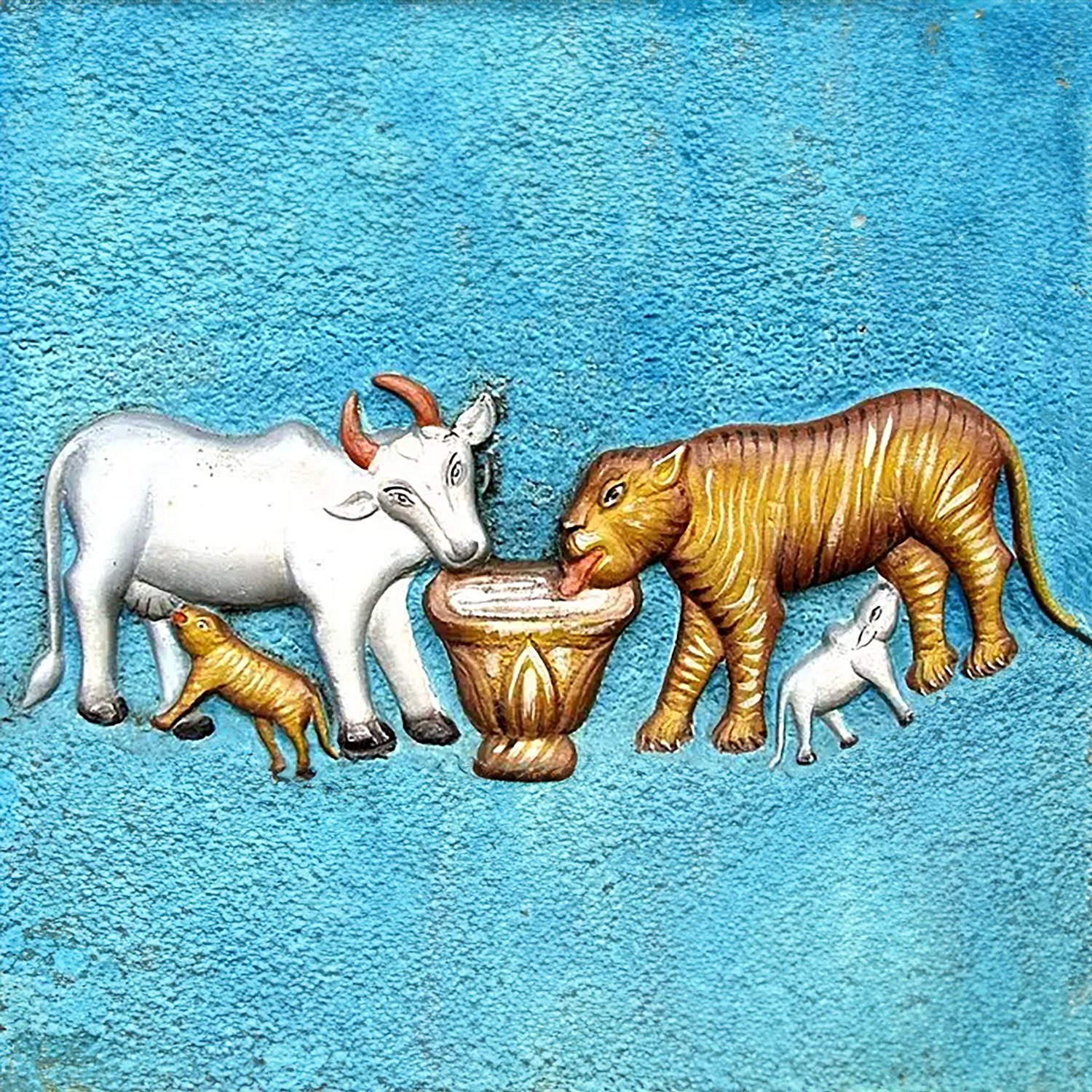
Jainism:
An Overview
Introduction
Jain teachings rest on five vows, the first of which is non-harm. Jains have long been lacto-vegetarians, but in light of contemporary dairy industry practices, the five vows require a vegan diet. Sacred stories from the Jain tradition often focus on a central ethic of compassion, featuring individuality and agency across species. Despite all of this, many Jains continue to consume dairy products. The Tirthankaras demonstrate the power of compassion in action, and contemporary Jain animal activists follow in their footsteps, bringing hope for change.
Texts & Teachings
Non-harm is at the core of Jain ethics, which also teach that other species are morally and spiritually important for Jain practice.
Non-harm is foundational to Jain ethics.
All creatures have their own point of view (anekantavada).
Five Jain vows protect all living beings.
Diet
Five Jain vows require choosing vegan.
Jain are to try to avoid harming people, animals, and the planet.
Jains must honor truth and the points of view of other animals.
Jains may not take what has not been given.
Sacred Stories
Jain stories remind that every living being has a point of view and that compassion and non-harm are preeminent moral virtues.
The compassion of Prince Arishtanemi led to his rebirth as the 22nd Tirthankara.
The Parable of the Elephant and the Rabbit reminds that animals are compassionate, spiritual individuals.
Abusive Traditions
Some Jains continue to harm and kill cattle not only by consuming dairy, but also through attempts to help other living beings.
Activism
Jains have been animal activists for centuries.
Jains have maintained animal shelters (panjrapoles) for centuries
Jain heroes exemplify non-harm and compassion for animals, inspiring contemporary movements such as that of the Jain Vegan Initiative (JVI).
Relevant Publication by Tapestry:
AMORE
Vegan Ethics
A short description about the book, should take about two rows and not more.
